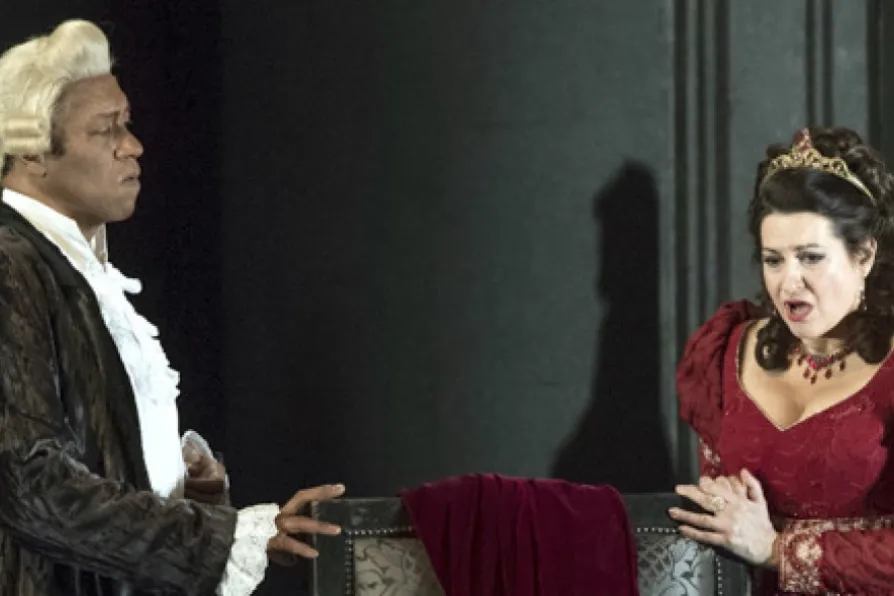GLENN BURGESS suggests that, despite his record in Spain, Orwell’s enduring commitment to socialist revolution underpins his late novels

 Superb: Mark Doss and Claire Rutter
[Richard Hubert Smith]
Superb: Mark Doss and Claire Rutter
[Richard Hubert Smith] Tosca
Millennium Centre, Cardiff/Touring
WELSH National Opera's opening night performance of Tosca was sublime, with superb acting and singing from Claire Rutter as Tosca, Hector Sandoval as the painter Cavaradossi and Mark Doss as the evil Baron Scarpia.
Giacomo Puccini’s tale of love, lust, power and corruption, driven by his divine music, gets a breathtaking start in the opening act set in the Sant’Andrea della Vale church. There, Cavaradossi is helping escaped political prisoner Cesare Angelotti (ably sung by Daniel Grace) evade the clutches of Scarpia and his secret police.
Director Michael Blakemore's deft touch provides some light relief in the heavily atmospheric church, with Donald Maxwell's sacristan providing a nicely judged balance of comic timing and beautiful singing in his duet with Cavaradossi.


















